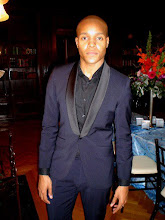 I just saw "Milk," the biopic about the rise of the nation's first openly gay (surley not the first) man elected to public office. I knew the story before, so needless to say, I knew how it all ends. So the director's task was to effectively tell a story that could reach a broad audience drawing upon univesal themes. Juxtaposing this film with the election of Barack Obama, and the timing could not have been more perfect. Moreover, with the current debates surrounding same sex marriage, the movie was released at a heightened time of political activism. However, the subject of this post is to discuss how moved I was by this film.
I just saw "Milk," the biopic about the rise of the nation's first openly gay (surley not the first) man elected to public office. I knew the story before, so needless to say, I knew how it all ends. So the director's task was to effectively tell a story that could reach a broad audience drawing upon univesal themes. Juxtaposing this film with the election of Barack Obama, and the timing could not have been more perfect. Moreover, with the current debates surrounding same sex marriage, the movie was released at a heightened time of political activism. However, the subject of this post is to discuss how moved I was by this film.The film opens alluding to what will happen in the films final moments. The character himself takes us through historical context in which he was able to rise to become the influential person he was. The film effectively narrates the political current: the christian evangelicals as crusaded by Anita Bryant (the original Sarah Palin) are fueling initiatives throughout the country to supress or repeal the passage of any laws that may prevent discrimination based on sexual orientation. In this case, individuals' jobs were threatened based merely on their sexual orientation. Seems archaic today, right? Well currently, although there is a piece of legislation on capital hill that would amend Title VII to include sexual orientation as an impermissible basis for employment termination, the law has yet to pass. Still, in some states, there are laws protecting discrimination based on sexual orientation. So, in Milk's time, the fight was to protect the employment rights of Americans. Fair enough, but Anita Bryant and company found gay and lesbian Americans deplorable and unsuitable to teach children in school for fear they may "turn them gay." Interesting correlation to say the very least.
At any rate, Harvey Milk forms a coalition in San Francisco's Castro District. He mobilizes the gays first. He orchestrates, successfully, some boycotts. Still he is unable to get elected. So he broadens his reach and begins to reach out to the "us-es." The film ends on this very powerful point. And perhaps this is why the film has broad appeal. It is not about a gay movement, a women's liberation, or black rights movement. The us-es are all of us who so easily fall into a group prone to grave injustices by political majorities. Similarly, as Martin Luther King Jr., said, "An injustice anywhere is an injustice everywhere." Political movements are most successful when they are able to tap into this concept. This perhaps may be why Prop. 8 passed in California. It must not just be about a one problem. The rhetoric should center around why this argued injustice is antithetical to American principles of freedom, democracy, and rule of law.
I was so intrigued by the ensemble cast of characters that I did some research. As it turns out, Milk's partner, Scott Smith, was a essential to Milk's rise to power. The film does well in conveying their loving relationship. Harvey's political drive and charisma ultimately drove a wedge between he and Scott, but there was no denying that Scott was an intstrumental part of Milk's campaign. A woman on a website who knew Scott and Harvey commented on their relationship. She said that the saying is usually that behind every successful man, their is a good woman. But, she said in Harvey's case, it was Scott who was his driving force. The film did a sufficient job illustrating their relationship.
I was very much inspired by this film. But, maybe it's because I love politics. Maybe love is a strong word. Maybe I should say, "I love this game." For that's what politics is to me -- a sport or artform. Harvey Milk was a masterful politician, and that's why he is an "aristo-politico."







No comments:
Post a Comment